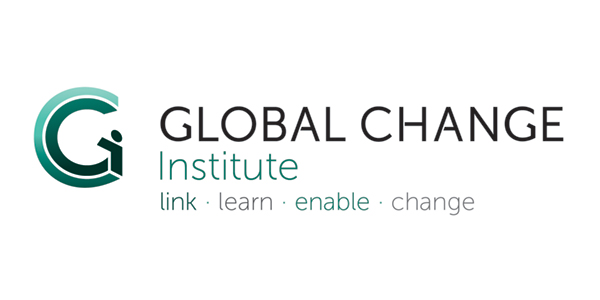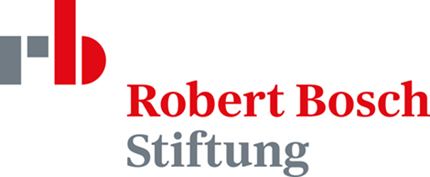Pan African Research College on sustainable cities founded at Wits
- Wits University
College supported with five-year grant by Robert Bosch Stiftung and include partner institutions from Ghana, Kenya, the UN and the University of Cape Town.
A new Pan African Research College on Sustainable Cities has been established at the University of the Witwatersrand, Johannesburg. The founding of the college was made possible by the German-based foundation Robert Bosch Stiftung GmbH.
Fully funded by a five-year grant of the Foundation, the College is made up of senior researchers from five partner universities, namely the University of Ghana, University of Nairobi, the United Nations University Institute for Natural Resources (Accra, Ghana), the University of Cape Town and Wits University.

The College will focus on finding solutions to the challenges that African cities are currently facing and will be facing in the future. The aim of the college is to bring together researchers from different disciplines related to sustainable cities. These will include experts from fields like meteorology, town and city planning, environmental sciences, social sciences and architecture. Besides the support of seven PhD students as well as five post-doctoral fellows, the Foundation’s funding also covers leadership and management training, annual network meetings and conference attendances. Based on open calls published towards the middle of the year 2018, the fellows’ selection will be made jointly by all partner institutions.
“The establishment of a Pan African Research College on Sustainable Cities is an ambitious project that requires a great deal of commitment. The network links different knowledge partners which will enable them to learn from each other to develop a shared understanding which, in turn, creates the conditions for positive change in their spheres of influence. The establishment of a Pan-African College speaks to the idea of African solutions to African problems,” says Professor Barend Erasmus, Director of the GCI and academic head of the new college. “Our aspiration is to co-create a college that is useful, that meets real training and research needs, and that does so with a mindful and thoughtful ethos. The College aims to bring together Pan-African experts who will have the opportunity to share knowledge, to learn from each other and attain a shared understanding of the complexities facing an urban Africa. The premise for bringing together this network is guided by transdisciplinary approaches due to the complexity of challenges.”
Dr Katrin Rehak-Nitsche, Senior Vice President Science and Research of the Robert Bosch Stiftung, says: “We are delighted to collaborate with these five excellent universities in promoting a new generation of African scholars engaged in urban sustainability challenges. Since 2016, sustainable living spaces in general, and research for transformative urban and rural spaces in particular, have been focus areas of the Foundation’s activities. The College now represents one of the key projects of our Science and Research Department and we are convinced that with the founding of the college, the global debate around sustainable cities will benefit tremendously. We are also very happy that the College goes far beyond pure scholarships for PhDs and Postdocs. Rather, the College will also provide method and leadership training for its fellows and will enable knowledge co-production and peer-to-peer learning across the continent and internationally.”
The previous collaboration of the partner institutions has already paid off. In two different workshops taking place in 2017, the partners involved in the establishment of the college, agreed to focus the research of the college on the following four topics:
- Alternative provisioning of basic services: aims to promote research examining the alternative provisioning of basic services. It intends to challenge dichotomies of “formal” and “informal” services, and to seek solutions to African urban challenges based on African urban solutions
- Typologies of urban sprawl and other land use dynamics: aims to promote research on land use transitions in the urban space. The intention is to seek solutions for building a more equitable city
- Governance and sustainability in the African urban context: aims to promote research on the roles and responsibilities of stakeholders in the urban space. Research under this theme promotes transformative stakeholder participation in urban sustainability
- Repositioning the African cities debate: aims to challenge dichotomies in urban thinking across the continent. It intends to promote research that contributes to forming policies and theory on African cities.
About the Robert Bosch Stiftung
 The Robert Bosch Stiftung GmbH is one of Europe’s largest foundations associated with a private company. In its charitable work, it addresses social issues at an early stage and develops exemplary solutions. For this purpose, it plans and implements its own projects. Additionally, it supports third-party initiatives that have similar goals.
The Robert Bosch Stiftung GmbH is one of Europe’s largest foundations associated with a private company. In its charitable work, it addresses social issues at an early stage and develops exemplary solutions. For this purpose, it plans and implements its own projects. Additionally, it supports third-party initiatives that have similar goals.
The Robert Bosch Stiftung is active in the areas of health, science, society, education, and international relations. In the coming years, the Foundation will increasingly direct its activities on three focus areas:
- Migration, Integration, and Inclusion
- Social Cohesion in Germany and Europe
- Sustainable Living Spaces
Since it was established in 1964, the Robert Bosch Stiftung has invested more than 1.4 billion euros in charitable work.

